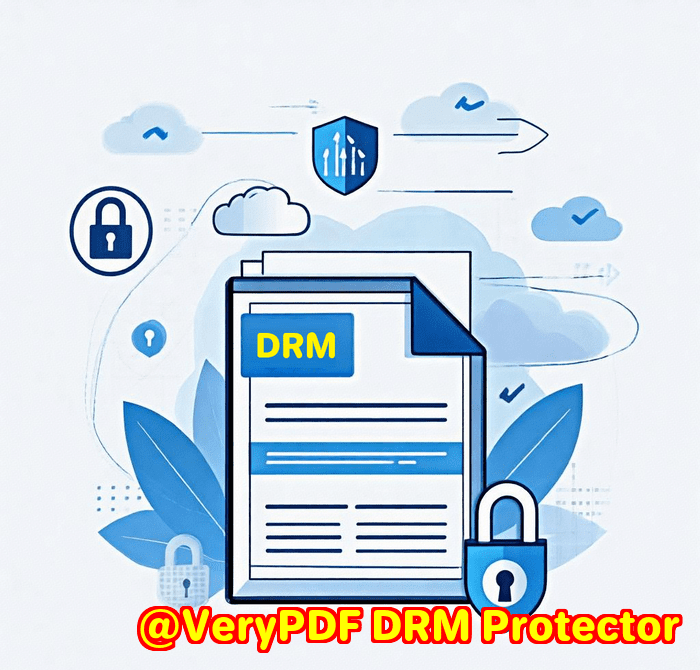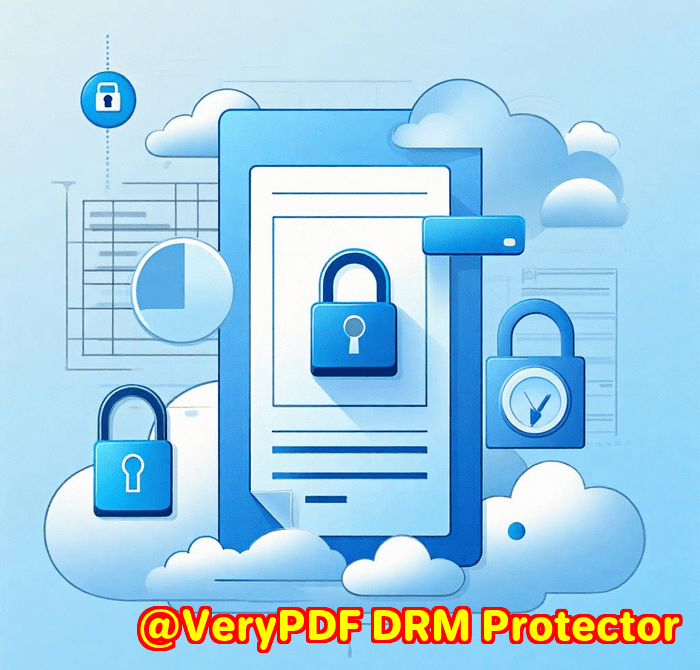Lock Access to PDF-Based Onboarding Documents Until New Hires Accept Terms and Sign NDA Agreements
Every HR manager knows the headache of sending onboarding documents, only to find they’re shared prematurely or without proper acknowledgement. I used to lose sleep over new hires skimming sensitive PDFs before signing NDAs and the risk it brought to company data was real.

That’s why I turned to VeryPDF Security Enterprise DRM. It locks down access to PDF-based onboarding materials until new hires accept terms and digitally sign their NDAs. No more guessing if documents got into the wrong hands or worrying about compliance issues.
Here’s how this DRM tool changed my whole onboarding workflow and why it might just be the security upgrade your business needs.
Why Lock PDF Onboarding Documents? The Real Challenge
When you send PDF onboarding packets, you want new employees to review and sign critical agreements before diving into confidential info. But PDFs are notorious for being copied, forwarded, or saved without restrictions.
In my experience, just relying on email disclaimers or manual follow-ups left me vulnerable. Documents would circulate, and I’d lose track. Worse, without proof of NDA acceptance, legal risks piled up.
The question: How do you securely lock PDFs so that access is granted only after a legal step like signing an NDA? That’s exactly where VeryPDF Security Enterprise DRM shines.
VeryPDF Security Enterprise DRM: A Game Changer for Document Security
VeryPDF’s DRM software is a powerful but surprisingly user-friendly solution designed for businesses that need tight control over who accesses their digital content and when.
The product encrypts PDF files and locks them behind permissions that can be fine-tuned down to device limits, expiry dates, and even IP restrictions. For onboarding, this means you can:
-
Prevent access to sensitive PDFs until NDAs are digitally signed
-
Restrict printing, copying, or forwarding of documents
-
Apply dynamic watermarks to identify users who open files
-
Track exactly when and how each document is accessed
This is perfect for HR teams, legal departments, and anyone handling sensitive onboarding materials.
How I Used VeryPDF DRM to Secure My Onboarding Documents
When I first started, I was juggling multiple PDFs scattered across emails and cloud drives. I’d often wonder if the NDA was signed before someone accessed the training manuals or salary details.
I set up VeryPDF Security Enterprise DRM to require new hires to accept terms and sign the NDA before unlocking any onboarding files.
Here’s how it worked in practice:
-
Upload your PDF onboarding docs to the DRM portal.
VeryPDF supports organising documents into folders, so I grouped NDAs separately from training content.
-
Set up user groups and permissions.
I created a ‘New Hires’ group with access locked until they signed the NDA.
-
Configure the access workflow.
Using the platform’s controls, I set it so PDFs remain locked and inaccessible until the NDA was digitally signed via the secure portal.
-
Enable tracking and reporting.
Now, I can see who’s opened what, when, and on which device. This gave me peace of mind and audit trails for compliance.
Features That Stood Out and Why They Matter
1. Dynamic Watermarking
Every document opened by a user displays a watermark with their name and timestamp. This alone discouraged casual sharing and reminded employees the info is confidential.
2. Multi-layered Access Controls
You can limit access by device count, geographic IP, or time windows. I used expiry controls to ensure documents become inaccessible after a set date perfect for temporary access during onboarding.
3. Seamless User Experience
End users don’t need special plugins they open PDFs right in their browser or through a secure portal. This meant no IT headaches for setup and quick adoption.
4. API Integration & Single Sign-On (SSO)
Integrating the DRM into our existing HR and learning management systems was straightforward thanks to the API. Single sign-on made it frictionless for new hires to authenticate and access files.
How VeryPDF Compares to Other DRM Solutions
Before I found VeryPDF, I tried Adobe’s DRM and a few other tools. Here’s what I learned:
-
Adobe’s system was powerful but overcomplicated and costly for our scale.
-
Some free tools promised encryption but lacked user-level access control or activity tracking.
-
VeryPDF struck a balance: robust security features, easy deployment, and a permanently free trial so you can test before committing.
Plus, VeryPDF’s customer support helped me customise the portal and workflow without needing a dedicated IT team.
Why You Should Lock Access to Your PDF Onboarding Docs
If your onboarding process involves sensitive contracts, NDAs, or proprietary information, you’re playing a risky game without a proper DRM.
VeryPDF Security Enterprise DRM lets you:
-
Control who accesses onboarding PDFs and when no more guesswork.
-
Ensure NDAs are signed before content is viewed legally sound and audit-ready.
-
Prevent unauthorized printing, copying, or sharing your content stays protected.
-
Gain detailed usage analytics understand engagement and troubleshoot issues fast.
For me, it took the chaos out of onboarding compliance and let me focus on what really matters: getting new hires up to speed securely.
Ready to Lock Down Your Onboarding Documents?
If you handle onboarding PDFs and want to guarantee NDAs are signed before anyone gets access, VeryPDF Security Enterprise DRM is the tool to try.
I’d highly recommend this if you’re serious about protecting confidential documents without burdening your users or IT team.
Start your free trial now and see how it simplifies secure onboarding: https://drm.verypdf.com/
Custom Development Services by VeryPDF
VeryPDF isn’t just about off-the-shelf DRM software they offer custom development services tailored to your specific technical needs.
Whether you need:
-
PDF processing solutions for Linux, Windows, macOS, or servers
-
Integration with Python, PHP, C++, .NET, or JavaScript environments
-
Custom Windows Virtual Printer Drivers or printer job capture tools
-
Advanced OCR, barcode recognition, or digital signature systems
-
Cloud-based document viewing, conversion, or DRM protections
Their expert team will work with you to build solutions that fit your unique workflows.
Interested? Reach out to their support team at http://support.verypdf.com/ and discuss your project.
FAQs
Q1: Can I restrict access to onboarding PDFs by device or location?
Yes, VeryPDF DRM lets you set device limits and IP address controls to restrict access geographically or by device count.
Q2: Does VeryPDF support digital signatures for NDAs?
Yes, you can require new hires to digitally sign NDAs through the secure portal before gaining document access.
Q3: Can I track who accessed each onboarding document?
Absolutely. The software provides detailed analytics showing who accessed what, when, and from where.
Q4: Is there a free trial available?
Yes, VeryPDF offers a permanently free and unlimited online trial so you can test all features.
Q5: Can VeryPDF integrate with our existing HR or LMS systems?
Definitely. Their API supports integration and single sign-on for seamless user access management.
Tags / Keywords
-
PDF onboarding document security
-
Lock PDF access until NDA signed
-
VeryPDF Security Enterprise DRM
-
Digital rights management for HR
-
Secure employee onboarding PDFs
Securing PDF onboarding documents until new hires accept terms and sign NDAs isn’t just best practice it’s essential. VeryPDF Security Enterprise DRM gives you the control, visibility, and peace of mind you need to manage confidential onboarding materials without fuss. Give it a try and watch your document security transform.




